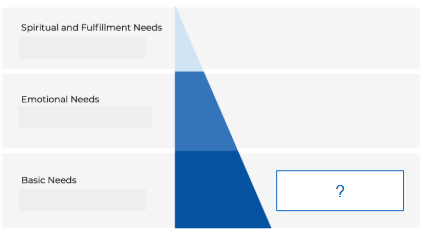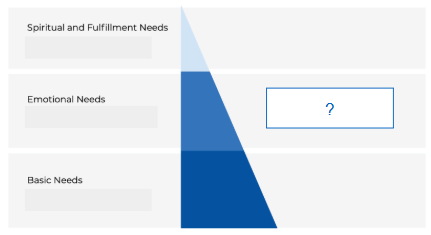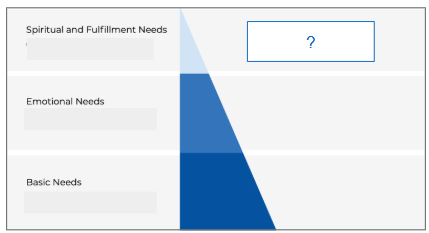All core emotions have associated urges to act.
Fear (avoid, hide, get reassurance, fight)
Anger (attack, yell, fight, insult)
Sadness ( ? )
Name a behavior that you’d expect from intense feelings of sadness.
Answers may vary; withdraw, isolate, lie on the couch
True or False:
When we are feeling down or low, we tend to stay inside, be by ourselves, and lie around. If we do this it can make those “low” feelings better.
False; research shows that isolating and engaging in low energy activities can worsen “low” feelings
True or False:
Stress is a normal response to demanding circumstances in our lives.
True
True or False:
Self-care is a unique set of healthy activities we do for ourselves to care for our physical, emotional, and spiritual well-being.
True
Name an example of a situation in which acting on strong emotions would be unhelpful.
Answers will vary; fighting with and insulting a friend because you’re angry, laying on the couch all weekend and avoiding friends because you’re sad
Fill in the Blank:
________________ is a specific type of acting opposite for when you are feeling down or have low energy.
Getting active
True or False:
Stress is always unhelpful.
False; stress can be both helpful and unhelpful
Name a self-care activity that would help support your basic needs.

Answers will vary; sleeping 8 hours per night, drinking water regularly, limiting junk food, wearing clothing appropriate for the season, exercising
One way to think about how to change our emotions is to think about what behavior is the opposite of what our emotion is making us want to do.
For example: if your anger is making you want to attack, you could leave the room and take some deep breaths instead.
Fill in the Blanks:
If feeling sad is making you want to __________________
you could ___________________ instead.
Answers will vary slightly for both blanks, but may align with something like- If feeling sad is making you want to lie in bed, you could go for a run or get together with a friend instead
Name an example of a physical activity you do in your own life and describe how it impacts your mood.
Answers will vary; make sure students name both an activity and how it impacts their mood
When stress is negatively affecting our mood and behaviors, we can use relaxation strategies to help calm our minds and bodies.
Name a relaxation strategy you could use to help calm your mind and body.
Answers will vary; progressive muscle relaxation, calm breathing, cloud relaxation
Name a self-care activity that would help support your emotional needs.

Answers will vary; prioritizing time to spend with supportive family members and friends, joining a club or sports team with similar interests to yours, sending a card to someone (or doing another kind act), changing or ending unhelpful relationships
Name an example of an up-regulating activity (activities that increase energy) that students could engage in either at home or at school.
Answers will vary; doing jumping jacks, playing a game of basketball, dancing, splashing their face with cold water
Sometimes barriers get in the way of people getting active.
What is one barrier you could encounter when attempting to get active?
Answers will vary; the weather, too much homework, too tired, negative thoughts and feelings
Relaxation strategies will be more helpful when we’re feeling stressed if we practice them regularly.
Name a time or situation when you might be able to use or practice a relaxation strategy.
Answers will vary; daily before bed to help sleep, before a test or quiz to help focus
Name a self-care activity that would help support your spiritual and fulfillment needs.

Answers will vary; practicing basketball, drawing or a skill of interest for 15 minutes daily, learning a new language, reading for leisure daily, volunteering, working with a teacher to improve math grades
Name an example of a down- regulating activity (activities that decrease energy) that students could engage in either at home or at school.
For a 300-point bonus: Name a situation when using a down-regulating strategy at school would be helpful.
Answers will vary; going for a nature walk, drinking a warm beverage, belly breathing, listening to music, journaling
Answers will vary; before a test or quiz, after a difficult conversation with a friend, when you get to school after having a rough morning at home
Start a Get Active Plan: Each team member must:
List two people with whom you would like to spend more time:
List two places you might like to go (somewhere you can get to easily – so probably not Hawaii!):
List two activities you would like to do more often – things that get your body moving!:
List two rewards that might help you try a few of the items from your menu above:
Answers will vary.
Choose a member of your Jeoparty team to lead the group in a Cloud Relaxation Exercise.
:)
Name one self-care activity you would like to do more regularly and provide an example of something that will make it more likely for you to follow-through.
Answers will vary, but students should: name an activity and an example of something they could do to make it more likely they’ll follow through